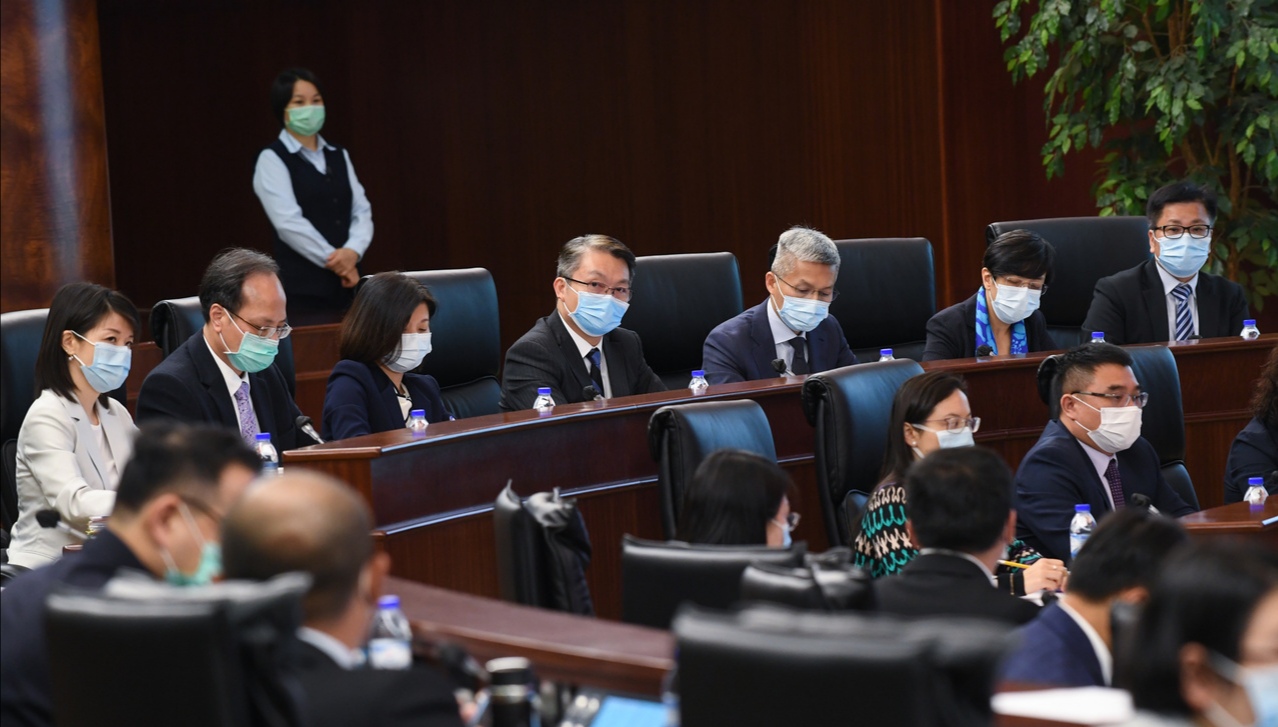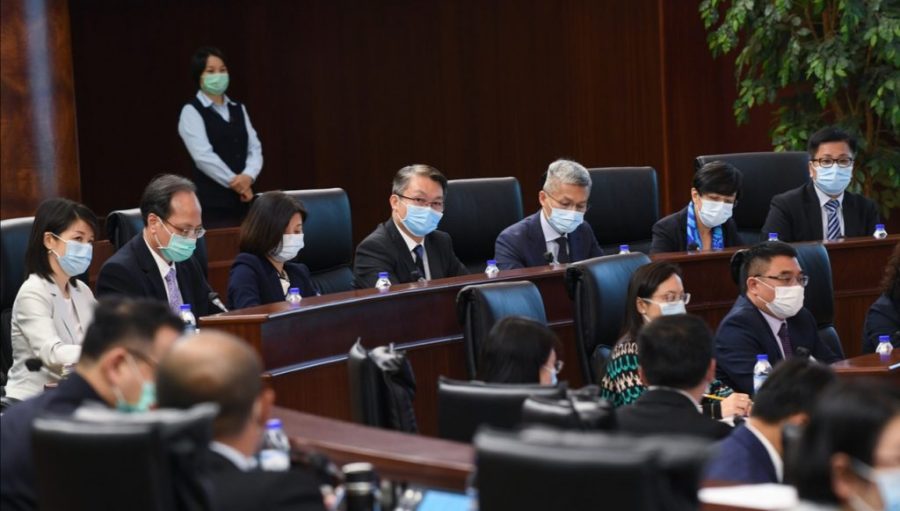32 patacas per hour for local and non-local workers from Nov 1
The Legislative Assembly (AL) on Thursday passed a government-initiated bill on the implementation of a statutory minimum wage for all workers except domestic helpers and employees with disabilities.
The city’s first-ever overall minimum wage law will take effect on November 1, when all employees in the private sector – except domestic helpers and disabled workers – will be covered by a statutory minimum wage of 32 patacas per hour.
Currently, Macau is the only Chinese jurisdiction that still does not have an overall minimum wage law. Minimum wage laws and regulations are in force in mainland China, Hong Kong and Taiwan.
The bill’s outline was passed during a plenary session of the legislature in July last year. The legislature’s 2nd Standing Committee held five meetings to review the bill.
Secretary for Economy and Finance Lei Wai Nong, Labour Affairs Bureau (DSAL) Director Wong Chi Hong and his deputy Ng Wai Han attended yesterday’s plenary session when the bill was voted on article-by-article in its second and final reading.
A statutory minimum wage for cleaners and doormen employed by the property management sector has been in force since January 1, 2016 when the wage was 30 patacas per hour – or 240 patacas a day or 6,240 patacas a month. The statutory minimum wage for the property management sector’s cleaners and doormen was raised to the current amount of 32 patacas an hour – or 256 patacas a day or 6,656 patacas a month – on September 1 last year after the legislature passed in June last year a bill raising the hourly wage by two patacas, an increase of 6.6 per cent.
The overall minimum wage bill passed by Thursday’s plenary session will abolish the current statutory minimum wage law for the property management sector’s cleaners and doormen on November 1, when Macau’s minimum wage system will be extended to all employment sectors.
The new overall minimum wage law states that the amount of the statutory overall minimum wage will be 32 patacas an hour – or 256 patacas a day or 1,536 patacas a week or 6,656 patacas a month.
According to the new law, the government will have to carry out its first review of the amount of the minimum wage two years after the implementation of the overall minimum wage, after which the government will have to review the amount every two years.
Addressing Thursday’s plenary session in the legislature’s hemicycle, Lei said that 3,100 local employees and 20,000 non-resident workers were estimated to benefit from the implementation of the overall minimum wage.
According to the latest official statistics, Macau’s labour force stood at 398,400 in the December-February period, while the number of non-resident workers stood at 191,377 at the end of February.
‘Minor impact on inflation’
Lei also said the government expected the implementation of the overall minimum wage of 32 patacas per hour to raise the city’s inflation rate by 0.3 of a percentage point. “It will merely cause a minor impact on Macau’s employment environment and inflation rate,” the policy secretary said.
Directly-elected non-establishment lawmaker Sulu Sou Ka Hou said that Macau had an obligation to establish an overall minimum wage system according to international labour conventions but that it had taken Macau a long time to finally get it off the ground. Sou said he doubted whether the overall minimum wage of 32 patacas per hour for 2020 can meet the bill’s objective of ensuring that employees have basic wage protection and preventing them from being paid a too low wage (Article 1 of the bill).
Lei replied that the government needs to determine the amount of the overall minimum wage by ensuring that it prevents employees from being paid an excessively low wage after striking the right balance among the interests of various parties in civil society. The policy secretary also said the government was always helping the working poor through its “comprehensive” social security system.
Lei also reaffirmed that the government has decided to exclude employees with disabilities from the minimum wage as it would discourage employers from hiring them.
Lei said that instead the government would provide a subsidy for disabled employees whose wages are less than the statutory minimum wage so that their wages will meet the amount. Lei said that the government would later draft an administrative regulation (by-law) on the subsidy for employees with disabilities, which would also come into force the same day the city’s overall minimum wage system will be implemented on November 1.
(The Macau Post Daily/Macau News)
PHOTO © Government Information Bureau






